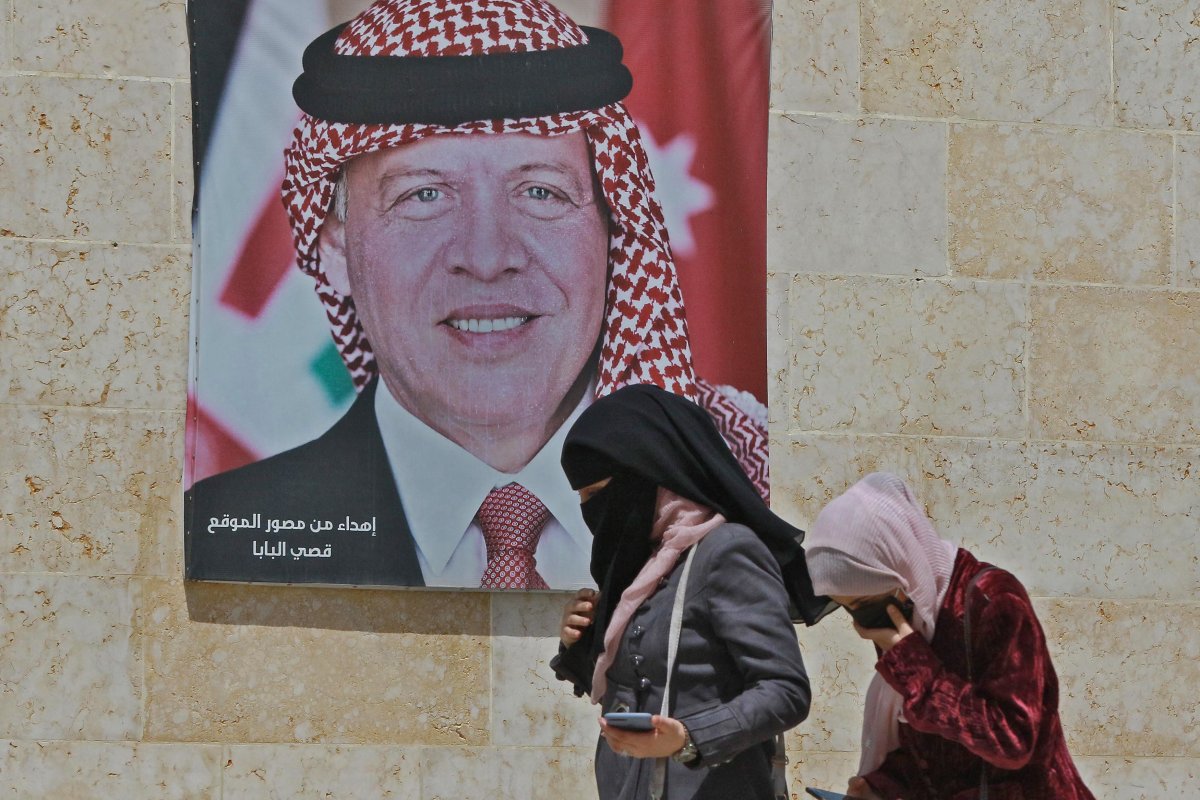The alleged coup attempt to overthrow King Abdullah II of Jordan should sound alarm bells for the United States and other Western governments. Do they want a strong ally that borders their other indispensable Middle East partner, Israel, to become a second Libya?
The tiny Arab nation, smaller in size than Virginia, announced on Sunday that it had arrested 16 to 20 people in connection with the "plot," including Bassem Awadallah, a former finance minister and chief of staff to King Abdullah II. The former crown prince of Jordan, Hamza bin Hussein, the king's half-brother, has also been accused of orchestrating the conspiracy.
If there was one lesson that the Arab Spring must have taught the U.S. and the West, it would definitely be "Never think twice about losing a reliable ally, especially in this mercurial region."
Jordan is a country with limited natural resources; it has long depended on financial support from Western and Gulf Arab nations. The country has for many years been going through economic hardships, reaching an unemployment rate of 24 percent and debts amounting to almost 90 percent of its GDP. However, it always stood out as a beacon of stability and a strong partner of the West, particularly the United States, which the kingdom has signed many defense agreements with. Amman fought alongside Washington against ISIS, signed a peace agreement with Israel in 1994 and has always championed a two-state solution to the Israeli-Palestinian conflict.
The king of Jordan is a popular figure and a symbol of unity in a very demographically complicated country. Jordan, home to a population of 10 million, hosts some 700,000 Syrian refugees and approximately 2.2 million Palestinian refugees, most of whom have obtained Jordanian citizenship. However, the tribal landscape of Jordan, as with many other Arab countries, is a crucial factor that needs to be considered in the governance of the country. Abdullah II, just like his late father, King Hussein, succeeded in managing and unifying those tribes. The powerful tribes are a substantial component of the political orientation of the country, alongside the army, the government, the parliament, the political parties and of course the ruling monarchy.
That dimension was exactly what the West did not comprehend about Libya: the country's social and tribal fabric and its power-playing game. Hence the war-torn state turned into a bombshell of terrorism, chaos, instability and failed governance. The idealism and wishful thinking the West exhibited while handling the crisis prevailed over realism. Failure to consider demographics, social orientation and how a system really works in a largely tribal country was a tragedy that the region and the international community cannot afford to repeat.

Libya, an OPEC member rich in oil and gas, is 20 times larger than Jordan, whose biggest export item is garments. But Libya's GDP in 2019 was $52 billion, while Jordan's was $44.5 billion, based on the latest figures from the World Bank. These surprisingly close figures reflect what instability has done to the North African country. Libya in 1970 used to produce more than 3 million barrels per day (bpd) and before toppling its leader Muammar Gaddafi produced 1.6 million bpd, but the country is now barely producing 1.2 million bpd. Political instability has nearly closed the GDP gap with Jordan, which is all the more remarkable considering the huge natural wealth gap between the two nations.
According to the United Nations Economic and Social Commission for Western Asia, the economic cost of the conflict in Libya since it erupted in 2011 has exceeded $576 billion. The West's misjudgment in handling the conflict, compounded by a lack of support and a surplus of irrelevant and idealistic visions, utterly paralyzed Libya and left its people with a little hope for a better future.
After the news of the alleged plot in Jordan broke out, King Abdullah II received messages of support from all over the world, mostly from Arab and Muslim countries. U.S. State Department spokesman Ned Price also voiced his government's support for the monarch. "We are closely following the reports and in touch with Jordanian officials. King Abdullah is a key partner of the United States, and he has our full support," he said.
The U.S. and the West need to do more to ensure the region does not get another blow. As a key player in the Middle East, Jordan needs strong political and economic support from its allies to navigate this crisis. Under the current monarch, the Levant nation has survived the many conflicts and wars that took place among its neighbors: the U.S. war on Iraq in 2003, the rise of ISIS in Syria and Iraq since 2011, the Gaza War in 2014 and the Arab Spring, including the Syrian War since 2011.
There is no doubt that the country has to undertake more effective reforms to alleviate the struggle of its people, create more jobs, attract investments and improve the standard of living, but the overall stability of Jordan at this crucial time is an international responsibility, especially for its allies and friends. Failing to support the country could further jeopardize the future of peace in the Middle East, evoking many miserable déjà vus.
Ibrahim Shukralla is an award-winning Emirati journalist. He holds an MA in Media, Culture and Communication from New York University, US. His Twitter account is @Shukralla.
The views expressed in this article are the writer's own.
Uncommon Knowledge
Newsweek is committed to challenging conventional wisdom and finding connections in the search for common ground.
Newsweek is committed to challenging conventional wisdom and finding connections in the search for common ground.
About the writer
To read how Newsweek uses AI as a newsroom tool, Click here.






